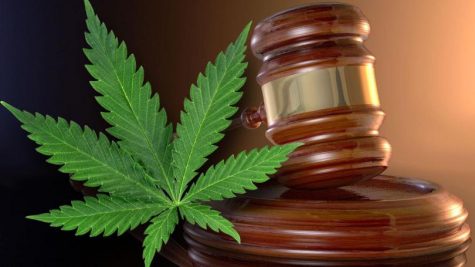Study: Crime clearance rates improved with cannabis legalization
Based on the findings of this WSU study, arrest rates plummeted almost 50 percent in Colorado and over 50 percent in Washington
Police effectiveness has not been hindered by cannabis legalization in Colorado and Washington, according to researchers at Washington State University (WSU).
Factually, there has been a noticeable improvement in clearance rates for specific crimes since cannabis has been legalized.
Prior to the authorization of cannabis retail sales in 2012, fewer cases were being solved for property and violent crimes. Data gathered by the FBI between 2010 and 2015 shows that clearance rates ameliorated in the cannabis-friendly states, whereas in other states, they did not change.
“Our results show that legalization did not have a negative impact on clearance rates in Washington or Colorado,” explained the assistant professor in WSU’s Department of Criminal Justice and Criminology, David Makin. “In fact, for specific crimes, it showed a demonstrated, significant improvement on those clearance rates, specifically within the realm of property crime.”
Researchers say cannabis legalization creates a “natural experiment”
 The WSU researchers responsible for carrying out this study published their findings in the journal Police Quarterly.
The WSU researchers responsible for carrying out this study published their findings in the journal Police Quarterly.
It was labeled a “natural experiment” that would delve into the impact that cannabis legalization has on the health and safety of the general public.
“If you think about our history, it’s rare where you have something that is entirely illegal that then becomes legal,” said Makin. “And we have an opportune moment to study to what extent that particular change had on society.”
Cannabis legalization has been voted on in 12 states and advocates in each state have protested about the risks of police reallocating resources to violent crimes and property.
The Colorado measure states that it is “in the interest of the efficient use of law enforcement resources,” whereas the Washington measure says it “allows law enforcement resources to be focused on violent and property crimes.”
Theft clearance rates increased after cannabis legalization
 Based on the findings of this WSU study, arrest rates plummeted almost 50 percent in Colorado and over 50 percent in Washington. Moreover, clearance rates for violent crime increased, as did clearance rates for both motor vehicle theft and burglary.
Based on the findings of this WSU study, arrest rates plummeted almost 50 percent in Colorado and over 50 percent in Washington. Moreover, clearance rates for violent crime increased, as did clearance rates for both motor vehicle theft and burglary.
Property crime clearance rates escalated, which effectively transposed a downward trend in Colorado. Makin drew attention to the fact that Washington’s burglary clearance rates were especially impressive, considering the property crime rate in the state usually peaks above other states.
“It demonstrates just how critical these types of policy changes can be,” Makin said. “I would offer it truly demonstrates why we need empirical data to support these types of studies, so we can understand to what extent crime and communities are influenced as more and more states move to legalization.”
While this research does represent useful information that can be used to further boost cannabis legalization, Makin affirms that it is limited in some ways.
“One of the pressing limitations within this study is that not all agencies equally report their clearance rates. It is entirely possible that as we expand our data collection to include additional years, more states, and a wider set of agencies, these results could change.”








